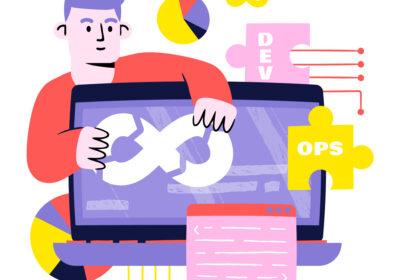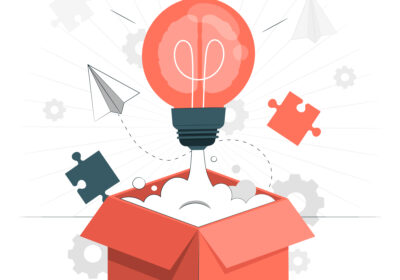At the beginning of time, humans sourced food locally first as hunter-gatherers then as agriculturalists. Fast forward to the 21st century, our food comes from different parts of the globe. Cranberries from the US, meat from Canada, rice from India, apples from Australia. With a pro-global supply chain comprising of multiple stakeholders like the producer, regulatory agencies, banks, food manufacturing companies, and importers spanning different countries and continents there are quite a few challenges.
Challenges Faced by the Food Sector
Currently, the agriculture industry is plagued by many inefficiencies that have stressed the global supply chains, especially during the COVID-19 pandemic. The sector struggles to bring down food waste, improve traceability across the supply chain, introduce faster payments across organizations and borders.
Food Traceability and Transparency
A major challenge faced by the sector is provenance or knowing the origin of ingredients that go into food processing. Consumers want to know where their food comes from, while retailers want to be sure of what they are selling. But with a complicated global supply chain, the components that go into the final product can be incredibly complex. Hence it is crucial for companies to have this information easily to act quickly and take remedial actions when it needs to and also to build trust in the consumer.
Food Waste
According to the UN, roughly around 1.4 billion tons of all food produces is wasted due to the inefficiencies of the food supply chain, with 75% of waste occurring before it reaches the consumer. Hence putting in place a system that tracks product loss, waste, and expiration dates could cut back $150 billion annually in food waste.
Food Fraud
According to a PricewaterCooper’s estimate, global food fraud accounts for $52 billion annually and adversely affects up to 10% of all food. At the same time, most companies are unaware of as and when they are susceptible to food fraud. Vulnerabilities can occur across raw materials, ingredients, products, and packaging.
Blockchain for the Food Industry
Although Blockchain is still in its infancy many believe that it could alter the way business and government function building new foundations for our economic and social systems. It has the capability to become the system of recording all internet transactions thereby creating a new technological infrastructure.
Blockchain can address a whole lot of issues that are faced by the food sector, delivering suitable solutions to persisting challenges as well as offering scope for newer improvements in efficiency across supply chains. It allows the whole ecosystem to collaborate closely on issues at the industry level rather than individual enterprise level.
Also Read: Blockchain in Financial Services
We shall examine how blockchain can be implemented to build trust and securitized while improving the efficiency of global supply chains.
Starting at the farm level, the farmer links their harvest to the web using Internet of Things (IoT) devices and records all information using Blockchain technology. These sensors monitor weather patterns and chemical changes in the soil and can also allow customers to watch in real-time how their produce is grown. This brings in a level of transparency because the intention is to truly reveal everything that happens on the field from the water and temperature to the organic fertilizer that has been used on the field and the data is recorded on the blockchain. Another major advantage of recording these data is that it helps to define the microclimate of the place to give farmers a basis to decide whether to plant earlier or later. So, they can avoid risk to their harvest. Once that is achieved the fluctuations in the agri-commodity prices created by natural disasters can be checked.
Once the produce is received by the food processing company a smart contract can be triggered to automatically initiate payment. A transformative application of blockchain to date, smart contracts could make supply chain management simpler and more transparent. The idea is to create a single source of information about products in a supply chain that can be updated only with the consensus among all participating stakeholders.
Authorised companies can track down and update the status of the product thus monitoring risk within the supply chain while ensuring quality.
Once the product is ready for export, a smart contract can be initiated for the approval of various regulatory agencies, and the status is updated for all to see. The information of inspection is communicated to the port of destination allowing them to prepare to receive the produce. As the produce is perishable items any delay in the shipping could cost a huge loss. Blockchain provides for a robust and secure data exchange and a tamper-proof repository for the storage and sharing of these documents thus reduce delays and fraud saving billions of dollars annually.
Benefits of Using Blockchain
Smarter Supply Chain Monitoring
With blockchain, supply chains can revive their management and handling, as they will have complete information on the members, which can offer a higher level of certainty over food safety.
The evidence is offered to the customer using QR codes and product labeling. This can block the entry of contaminated food into the supply chain, easy spotting in case it has entered the shelves, and remove it. This early alert to both retailers and manufacturers to unsafe food reassures the consumers.
Blockchain can also be of use in the inventory tracking and shipping processes, which helps to bring down the associated costs that would have gone to a third-party verifier.
Real-Time Traceability
With Blockchain all the participants in the food chain can now know the provenance or knowing the origin of ingredients that go into food processing. Also, the consumer can have information regarding the real-time location and status of their food products. Armed with better data, companies can develop more accurate supply and demand forecasting models, localize the sourcing of ingredients and restructure contracts. Also, the consumers can easily know about the labeling and product information through their smartphones.
Conclusion
We believe Blockchain could be a disruptive technology that could make the food sector a safer, more sustainable, and more efficient system. Verbal Technologies has deep and extensive experience in developing solutions specifically for agricultural clients. Our team can help you identify the opportunities in deploying blockchain and its associated technologies to benefit your business. For more information contact us.
SEO Consultant Dubai | Web Hosting Dubai | mobile application development companies in uae | it companies in uae | custom software development dubai



